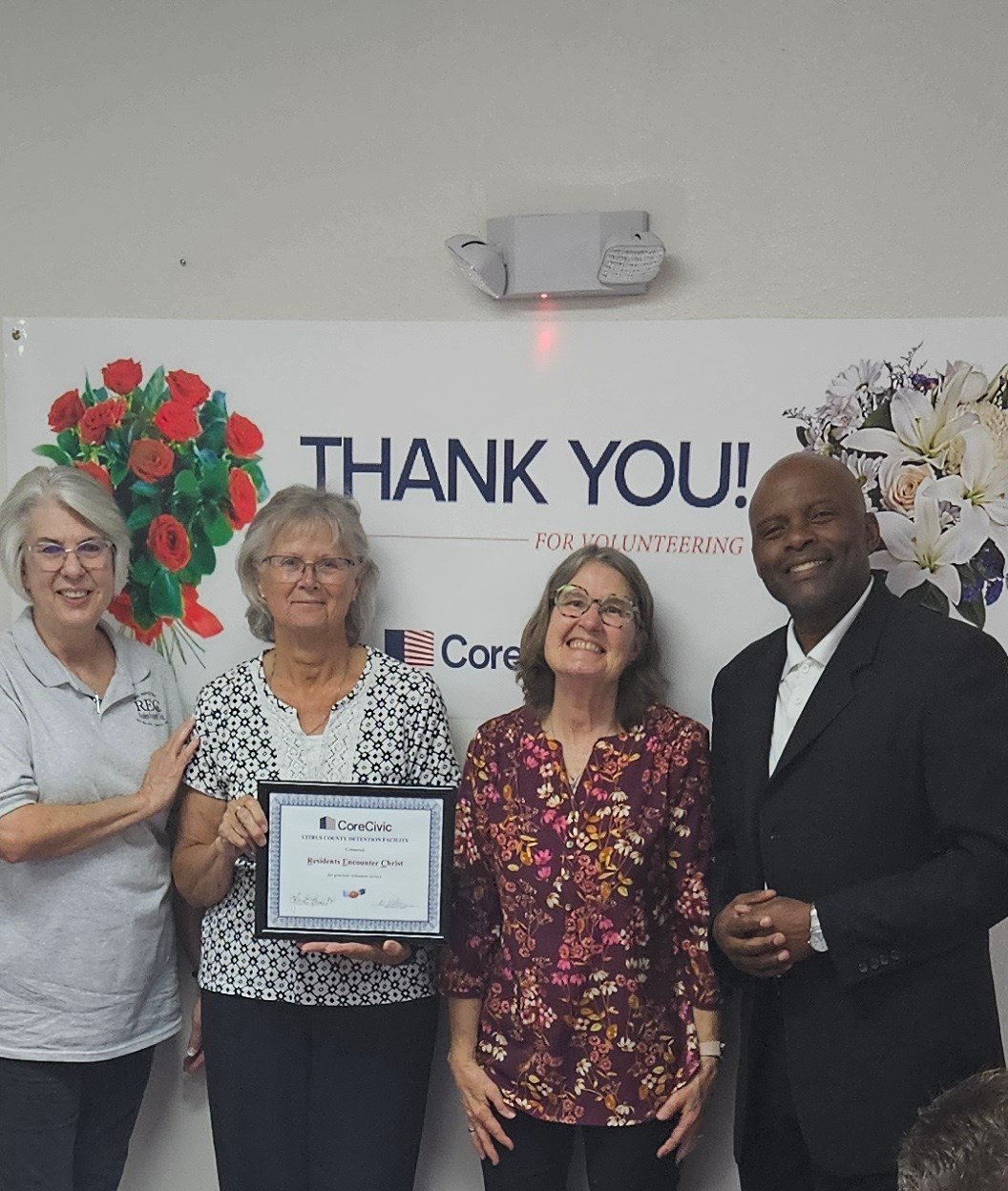
It’s no secret that volunteering is good for both physical and mental health—but did you know it can also have a powerful, lasting impact on the lives of justice-involved individuals?
Across the country, CoreCivic facilities welcome volunteers from all walks of life—faith-based leaders, educators, creatives, and more—who provide valuable, supportive services. Here are five meaningful ways volunteers help create positive, long-term change in the lives of incarcerated individuals.
1. Volunteers Promote Personal Growth
Volunteers offer a wide range of services, including religious programs, mental health support, and educational assistance. Through these interactions, justice-involved individuals gain new skills and insights, enhancing personal development and fostering a more positive sense of self.
2. Volunteers Foster a Sense of Community
Incarceration often leads to feelings of isolation and disconnection. Volunteers help break down those barriers by providing opportunities for social connection and meaningful interaction. These relationships foster a sense of community and belonging, helping individuals feel more connected to the world beyond facility walls.
3. Volunteers Provide Skill-Building Opportunities
Bringing diverse backgrounds and experiences, CoreCivic volunteers facilitate everything from creative workshops to job training to spiritual guidance. These programs equip participants with valuable skills that open doors for future growth and opportunity.
4. Volunteers Support Reentry Success
Many CoreCivic volunteers have professional experience in skilled trades, education, the arts, and more. By sharing their knowledge, they help prepare justice-involved individuals for a successful return to society—whether it’s through hands-on job training, resume help, or practical life skills.
5. Volunteers Help Reduce Recidivism and Improve Public Safety
With 95 percent of incarcerated individuals eventually returning to their communities, volunteer services play a critical role in helping them succeed post-release. Support with job readiness, housing, and life skills helps reduce the risk of recidivism and strengthens communities in the process.
According to the Federal Bureau of Prisons, more than 4,300 people have volunteered in correctional settings since the passage of the First Step Act in 2018—impacting over 150,000 lives. Research also shows that when incarcerated individuals engage with volunteers, they experience increased self-esteem, improved mood, and a greater sense of hope for the future.
